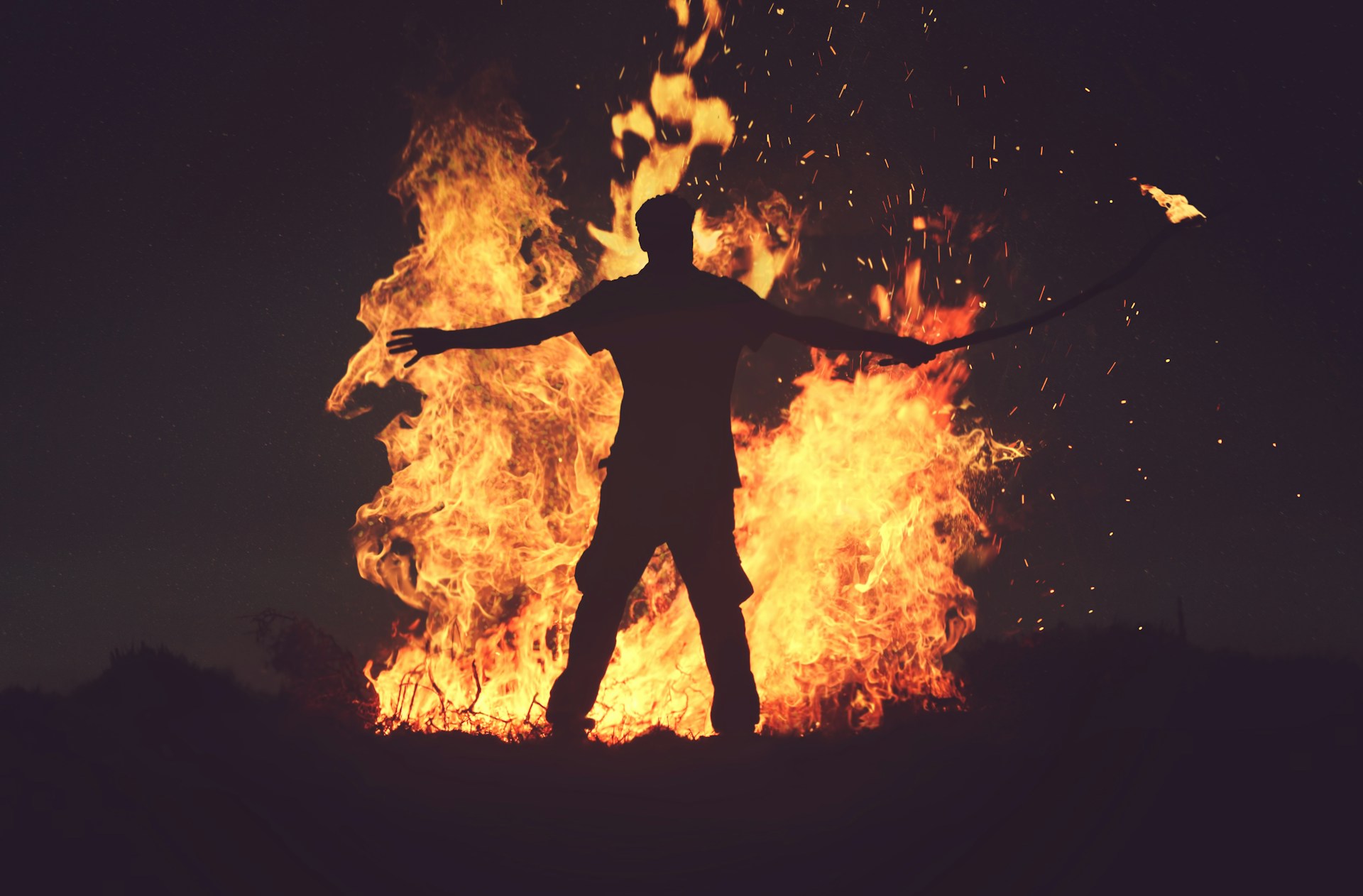There’s a man that used to drink where I used to work. I’ve never been more terrified of anyone in all my life. I am thinking of him now because I want to hurt someone very badly.
In the years that I knew him this man’s gout had gotten so that he’d arrive on a scooter and walk in, best he could, with a cane.
He liked to talk about women.
He’d say, “Boy, after you left they all sure did come in…”
And I’d ask him who.
And he’d say, “The women, son.”
And he’d tell me more. That they’d been monstrous last night and something has happened. They’ve gotten stronger and their teeth are all so white. Laughing like they’ve got nothing to hide, like what’s inside isn’t a secret no more and ought to be let out and known. He’d say he’s got the lesson they all should learn and that he’d like to give it to them, because the boys that’re left can’t hardly be trusted to teach it.
The boys that are left are a lot like myself and his son, but he’s worried most over the ones most like his son. There’s still hope for me. I’ve got what he calls fire. His son, though, has got no fire. He’s all fumes. Or ash. Or maybe wasn’t ever aflame to begin with and that’s a shame. See, you can only do what you can do, and you ought only to do what you want, and if that boy’s gonna be high up in his inertia, then the hell to it and bless him. Takes after his mother, anyhow.
Now that was a woman and he’s proud to say it. And he’d say it. She’d been soft and everything was in its place. Her hands knew where they were going and always found something to do. Even in her grief—yes, her grief—she’d been biscuit dough and he’d rolled her around in it. Her grief, he said.
In those early days, everything just raw enough, she’d weep. In his arms, heaving. Ribs rising to shadow and pale xylophone ridge, nose a glimmering and run, just full up with what she’d lost, empty of what she’d not yet come to know she possessed .
And he’d say things so sweet to her.
He’d say things like, “You’re beautiful.”
Things like, “You remind me of the stars.”
Or, “I love you.”
And, “I know it’s not fair. I miss him too.”
She had to remember that he’d been his friend. It was difficult and, being honest, getting it out of his head lost him sleep. Wouldn’t say he was heartbroken, though.
She hadn’t even seen him afterwards. They closed the casket and everything.
He’d been spread out, broken right to pieces. Splashed, in a way. All the glass and bits of him stuck onto the blacktop, but quiet. One side of his face rubbed to raw bone and his legs like they ought not have been. Eyeball out the socket, crushed and smattered like sledge-smashed gelatin.
Got out the car and walked over to him dead there on the street, folks starting then to pull over and make sure everything’s alright.
He’d gunned the shitty little sedan right into that tree. Wasn’t thinking straight, but remembers it being willful. Remembers he had his seatbelt on and figuring if he did die then it’d be the both of them since his friend wasn’t cinched in none, had his feet up by the windshield, just talking and talking and talking.
He’d been telling how good the honeymoon’d been, how she’s just a hell of a girl and a hell of a woman. The way he said woman—maybe the last thing he got out, saying it over and over—something about the way he’d said it and how before it had just been the two of them and now he’s gonna be on his own since he went and got himself a real hell of a woman.
They, the two of them, had for so long been the two of them. They just took, too. For so long, whatever it had been that they wanted they made a way to make it theirs.
It’s how the story ought to end, though. A tale of brothers always ends with brotherhood broken—all the better if it’s broken by the other brother.
But he’s got fire in his eyes. There would be something beautiful and tragic, a real flavor, in all this if this man didn’t have so much fire in his eyes burning it up when he told it.
His whites are yellowed and the irises, maybe once green, are all grey and speckled and one of his pupils droops like maybe he’d been hit. There’s things he never mentions, like what happened to his wife, and I can only assume that she’s dead, that she died, that their son is a coward because he misses her and lost her too early.
This man who scared me so much told his talk through a mouth black and blasted. He’d grin through it and drink. He’d cough into his hand and wipe whatever’d come up on his pants.
I don’t think he ever changed pants.
He had very large hands and I remember once, while he was laughing, another of his teeth fell out onto the bar.
He’d sometimes say that what made me better than his son, what made me a man to hope for, is that though I may never do it, I at the very least know what I’d have to do to get what I want.
